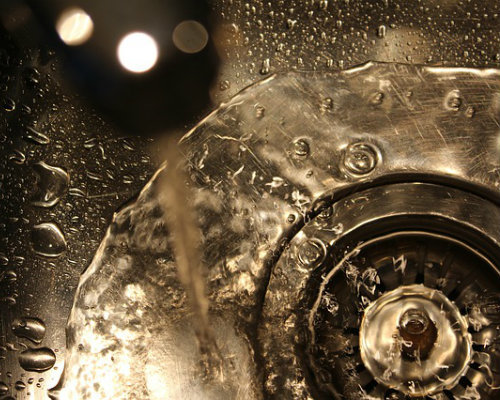
It’s not uncommon to run into plumbing problems in the spring, especially after the long and cold winters we get here in Chicago. One of the biggest plumbing problems homeowners run into is a slow draining or clogged sink or bath.
While some clogged drains are inevitable, there are plenty of things you can do to keep your plumbing running smoothly.
What Causes a Clogged Drain?
The most common cause of a clogged drain is the buildup of material; which leads to the slow moving and draining until it doesn’t drain at all.
Depending on where the clog is you may need to take a different approach, but read on because we’ll be going through what steps you can take to prevent it.
If You Have Frequent Clogs
If you’re running into a clogged sewer line every year, you need to take more advanced steps than just getting it cleaned. Consider getting a professional service to scope the line and identify what is causing the problem.
Recurring issues can be due to roots entering pipes, a rotted or partially collapsed pipe, or soil that has fallen into the broken pipe. These are issues that must be handled by a professional in order to be resolved.
How to Avoid General Issues with Clogging
If you don’t have recurring plumping problems and just the occasional clog, here are some preventative measures to take to avoid clogged drains in the future.
- Put a strainer over your kitchen sink drain to catch debris or food and prevent a nasty buildup
- Check your garbage disposal, as the drain connecting to it often shakes loose thanks to the vibration when you use your disposal
- Pour boiling water down your sinks at least once a week in addition to cleaning out the stoppers in bathroom drains
- Avoid pouring down grease, oil, or anything that may harden in your pipes like paint, glue, or wax
- Check the pipes under your bathroom sinks for normal wear and tear, as they are often the most used sinks (and the most neglected)
- Put a lint catcher on your washing machine to prevent lint, pieces of fabric, or even a small sock from wreaking havoc on your drains
- Look for a bacterial drain cleaner to incorporate in your cleaning routine. Bacterial based cleaners are noncorrosive and won’t harm your pipes!
- Make sure your family members and guests know the difference between your toilet and the trash bin. As tempting it may be to toss whatever down the toilet, this can lead to major complications.
While the list may seem long, they’re all items that require little to no maintenance in order to keep your pipes in good condition. Mostly changing your habits and being aware of how sensitive your pipes are can be the biggest help.
If you fear your home may be suffering from clogged pipes or other plumbing issues, schedule an inspection today!
Request an Inspection Online
This is the best way to start the process, ensuring a text, email, or voicemail doesn’t get lost in today’s digital traffic. For more complex projects, feel free to contact us and we will respond quickly regarding your needs.
Request An InspectionYou Can Trust Us
Having an unbiased expert in your corner is an incredibly valuable asset.
Learn Why